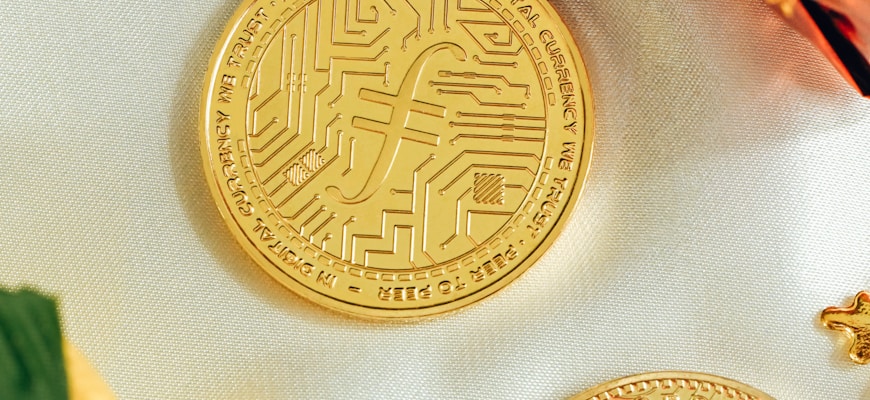How Privacy Coins Are Performing Amid Regulatory Scrutiny

- Exploring the impact of regulatory scrutiny on privacy coins
- Analyzing the price movements of privacy coins in response to regulatory pressure
- The future of privacy coins in a changing regulatory landscape
- Privacy coin projects adapting to comply with regulations
- Investor sentiment towards privacy coins during regulatory challenges
- Comparing the performance of different privacy coins under regulatory scrutiny
Exploring the impact of regulatory scrutiny on privacy coins
Regulatory scrutiny has had a significant impact on the performance of privacy coins in recent times. With governments and regulatory bodies around the world expressing concerns about the potential misuse of privacy coins for illicit activities, such as money laundering and tax evasion, the market for these coins has faced increased pressure.
As regulators continue to crack down on privacy coins, investors have become more hesitant to get involved in these digital assets. The uncertainty surrounding the future regulatory landscape for privacy coins has led to increased volatility in the market, with prices fluctuating wildly in response to news of regulatory developments.
Furthermore, some cryptocurrency exchanges have started delisting privacy coins from their platforms to comply with regulatory requirements. This has further dampened the demand for privacy coins and made it more difficult for investors to trade these assets.
Despite these challenges, privacy coin projects are working to address regulatory concerns and improve compliance measures. By implementing features such as KYC (Know Your Customer) and AML (Anti-Money Laundering) procedures, privacy coin developers are hoping to demonstrate their commitment to operating within the bounds of the law.
Analyzing the price movements of privacy coins in response to regulatory pressure
Examining the movements in the prices of privacy coins in light of regulatory pressure reveals interesting trends. When authorities announce stricter regulations or crackdowns on privacy coins, such as Monero, Zcash, and Dash, the market often responds with increased volatility. Investors become wary of potential legal implications and uncertainty surrounding the future of these coins.
Price fluctuations are common as traders weigh the risks and benefits of holding privacy coins in a regulatory environment. Some investors may choose to sell off their holdings to avoid any potential legal issues, leading to a temporary drop in prices. On the other hand, others may see this as an opportunity to buy privacy coins at a lower price, anticipating a rebound once the regulatory situation stabilizes.
Overall, the price movements of privacy coins in response to regulatory pressure highlight the delicate balance between privacy and compliance with laws and regulations. As governments around the world continue to scrutinize these coins, it is essential for investors to stay informed and adapt their strategies accordingly to navigate the evolving regulatory landscape.
The future of privacy coins in a changing regulatory landscape
In the midst of evolving regulations in the cryptocurrency space, the future of privacy coins remains uncertain. These digital assets, known for their enhanced privacy features, are facing increased scrutiny from regulators around the world. As governments strive to combat illicit activities such as money laundering and terrorism financing, privacy coins have come under the spotlight for potentially enabling anonymous transactions.
Privacy coins, like Monero and Zcash, have been designed to offer users a higher level of anonymity compared to traditional cryptocurrencies such as Bitcoin. By leveraging advanced cryptographic techniques, privacy coins obscure transaction details, making it difficult for third parties to trace the flow of funds. While this feature appeals to individuals seeking enhanced privacy and security, it has also raised concerns among regulators who fear it could be misused for illegal purposes.
As regulatory bodies tighten their grip on the cryptocurrency industry, privacy coins may face challenges in terms of adoption and acceptance. Exchanges and other service providers may be required to implement stricter Know Your Customer (KYC) and Anti-Money Laundering (AML) measures for privacy coin transactions, potentially limiting their use in the mainstream financial system. Moreover, some governments have even gone as far as proposing outright bans on privacy coins in an effort to curb illicit activities.
Despite these challenges, privacy coin projects are actively working on enhancing their compliance measures to address regulatory concerns. By collaborating with regulators and implementing transparency initiatives, privacy coin developers aim to strike a balance between privacy and legality. Additionally, advancements in technology, such as the integration of privacy features into other cryptocurrencies, could offer a middle ground for users looking to protect their financial privacy while adhering to regulatory requirements.
In conclusion, the future of privacy coins in a changing regulatory landscape remains uncertain. While these digital assets continue to offer unique privacy benefits, they must navigate a complex regulatory environment to ensure their long-term viability. By staying agile, proactive, and open to collaboration with regulators, privacy coin projects can potentially carve out a niche in the evolving cryptocurrency market.
Privacy coin projects adapting to comply with regulations
In response to increasing regulatory scrutiny, privacy coin projects have been making efforts to adapt and comply with regulations. Several projects have been implementing measures such as incorporating features to allow for traceability and compliance with anti-money laundering (AML) and know your customer (KYC) regulations.
One approach that privacy coin projects have been taking is to introduce optional compliance features that users can choose to enable. These features are designed to provide transparency while still preserving the privacy and anonymity that users value in privacy coins. By giving users the choice to disclose their transaction details when needed, projects can strike a balance between regulatory compliance and user privacy.
Another strategy that privacy coin projects are employing is to work closely with regulators to ensure that their technology aligns with existing regulations. By engaging in open dialogue with regulatory bodies, projects can proactively address any concerns and demonstrate their commitment to compliance. This collaborative approach can help build trust and credibility with regulators, potentially paving the way for more favorable regulatory treatment in the future.
Overall, privacy coin projects are recognizing the importance of adapting to comply with regulations in order to ensure their long-term viability. By implementing compliance features and working collaboratively with regulators, these projects are demonstrating their commitment to operating within the bounds of the law while still providing users with the privacy and security they seek.
Investor sentiment towards privacy coins during regulatory challenges
Investor sentiment towards privacy coins has been cautious amidst increasing regulatory challenges in the cryptocurrency market. Privacy coins such as Monero, Zcash, and Dash have faced scrutiny from regulators due to their enhanced privacy features, which can potentially be used for illicit activities. This has led to concerns among investors about the future of these privacy coins and their ability to navigate the regulatory landscape.
Despite these challenges, some investors continue to see potential in privacy coins as they offer increased anonymity and security features compared to other cryptocurrencies. This has led to a divided sentiment among investors, with some choosing to hold onto their privacy coin investments while others are opting to divest due to regulatory uncertainties.
Regulatory developments play a significant role in shaping investor sentiment towards privacy coins. As regulators around the world tighten their grip on cryptocurrency transactions, investors are closely monitoring how privacy coin projects are adapting to comply with regulations while still preserving user privacy. This delicate balance between regulatory compliance and privacy features will ultimately determine the long-term viability of privacy coins in the cryptocurrency market.
Comparing the performance of different privacy coins under regulatory scrutiny
When comparing the performance of various privacy coins in the face of increasing regulatory scrutiny, it is evident that each coin has responded differently to the challenges presented. For example, Monero, which is known for its strong privacy features, has seen fluctuations in its value as regulatory agencies have expressed concerns about its potential use in illegal activities. On the other hand, Zcash has taken a more proactive approach by implementing features that allow for optional privacy, which has helped to alleviate some of the regulatory concerns surrounding the coin.
Dash, another popular privacy coin, has also faced scrutiny from regulators but has managed to maintain its value by emphasizing its compliance with regulations and its commitment to transparency. Meanwhile, Verge has struggled to gain traction in the market due to concerns about the effectiveness of its privacy features, leading to a decline in its value.
Overall, the performance of privacy coins under regulatory scrutiny highlights the importance of finding a balance between privacy and compliance. Coins that are able to address regulatory concerns while still providing strong privacy features are more likely to succeed in the long run. As regulators continue to pay closer attention to privacy coins, it will be crucial for these projects to adapt and evolve in order to meet the demands of the changing regulatory landscape.




